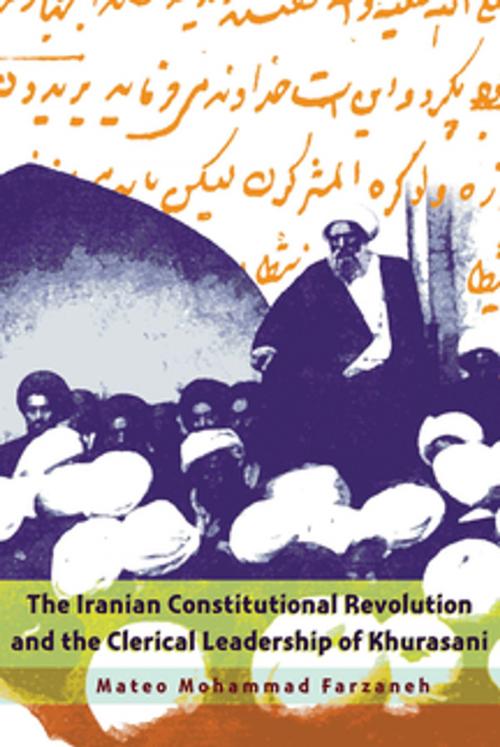The Iranian Constitutional Revolution and the Clerical Leadership of Khurasani
Nonfiction, Religion & Spirituality, Christianity, Church, Church & State, History, Middle East| Author: | Mateo Mohammad Farzaneh | ISBN: | 9780815653110 |
| Publisher: | Syracuse University Press | Publication: | March 13, 2015 |
| Imprint: | Syracuse University Press | Language: | English |
| Author: | Mateo Mohammad Farzaneh |
| ISBN: | 9780815653110 |
| Publisher: | Syracuse University Press |
| Publication: | March 13, 2015 |
| Imprint: | Syracuse University Press |
| Language: | English |
The Iranian Constitutional Revolution was the twentieth century’s first such political movement in the Middle East. It represented a landmark in Iranian history because of the unlikely support it received from Shi‘ite clerics who historically viewed Western concepts with suspicion, some claiming constitutionalism to be anti-Islamic. Leading the support was Muhammad Kazim Khurasani, the
renowned Shi‘ite jurist who conceived of a supporting role for the clergy in a modern Iranian political system.
Drawing on extensive analysis of religious texts, fatwas, and articles written by Khurasani an other pro- and anti-constitutionalists, Farzaneh provides a comprehensive and illuminating interpretation of Khurasani’s religious pragmatism. Despite some opposition from his peers, Khurasani used a form of jurisprudential reasoning when creating shari‘a that was based on human intellect to justify
his support of not only the Iranian parliament but also the political powers of clerics. He had a reputation across the Shi‘ite community as a masterful religious scholar, a skillful teacher, and a committed humanitarian who heeded the people’s socioeconomic and political grievances and took action to address them. Khurasani’s push for progressive reforms helped to inaugurate a new era
of clerical involvement in constitutionalism in the Middle East.
The Iranian Constitutional Revolution was the twentieth century’s first such political movement in the Middle East. It represented a landmark in Iranian history because of the unlikely support it received from Shi‘ite clerics who historically viewed Western concepts with suspicion, some claiming constitutionalism to be anti-Islamic. Leading the support was Muhammad Kazim Khurasani, the
renowned Shi‘ite jurist who conceived of a supporting role for the clergy in a modern Iranian political system.
Drawing on extensive analysis of religious texts, fatwas, and articles written by Khurasani an other pro- and anti-constitutionalists, Farzaneh provides a comprehensive and illuminating interpretation of Khurasani’s religious pragmatism. Despite some opposition from his peers, Khurasani used a form of jurisprudential reasoning when creating shari‘a that was based on human intellect to justify
his support of not only the Iranian parliament but also the political powers of clerics. He had a reputation across the Shi‘ite community as a masterful religious scholar, a skillful teacher, and a committed humanitarian who heeded the people’s socioeconomic and political grievances and took action to address them. Khurasani’s push for progressive reforms helped to inaugurate a new era
of clerical involvement in constitutionalism in the Middle East.















